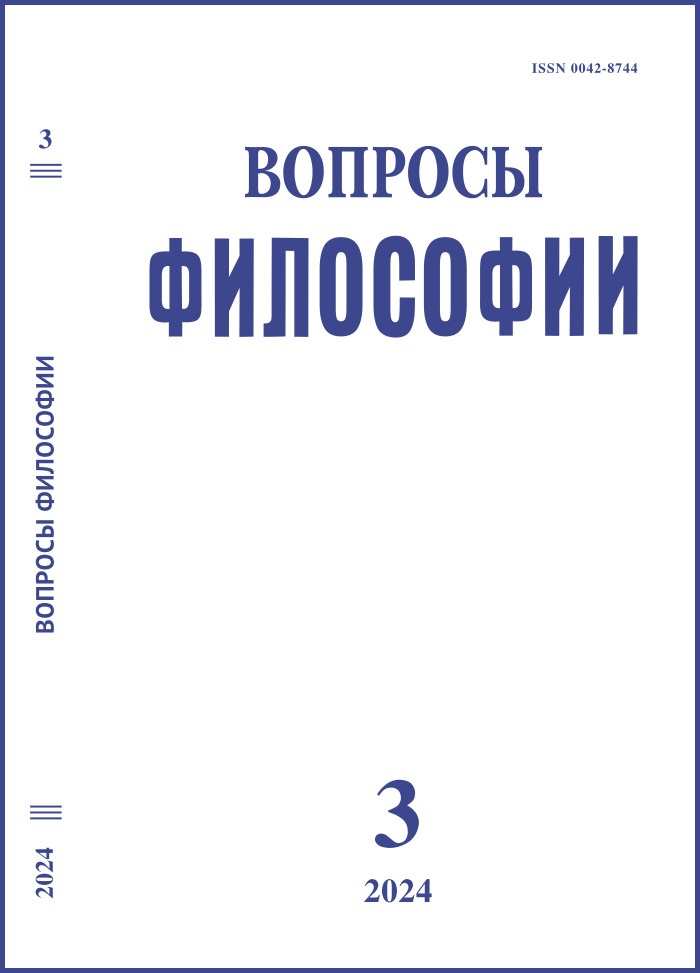Лабиринт техники и возвращение к природе: «Лес» Владимира Бибихина в контексте философского постгуманизма
DOI:
https://doi.org/10.21146/0042-8744-2024-3-105-115Ключевые слова:
Бибихин, постгуманизм, антропология, экофилософия, феноменология, философия природы, философия техники, современная философияАннотация
Статья посвящена рассмотрению философии природы, представленной в лекционном курсе «Лес (hyle)» Владимира Бибихина, в контексте философии постгуманизма и современной критики технической эксплуатации природы в целом. Автор указывает, что помещение «Леса» в рамку данной проблематики является перспективным направлением актуализации мысли русского философа, поскольку ключевые идеи постгуманизма – критика антропоцентризма и переосмысление отношений человека и природы в направлениях антропоморфизации природы и натурализации человека – обнаруживаются и в текстах Бибихина. В контексте творчества философа «Лес» рассматривается как реализация стратегии «возвращения к природе», которая намечена Бибихиным в тексте «Философия и техника» как альтернатива «лабиринту техники» и «империализму человека», что указывает на связь в мысли Бибихина «Леса» с проблематикой философии техники. Анализируются основные темы «Леса», а в качестве определяющих логику курса выделяются концепты амехании и автомата. Эти понятия, введенные в курсе «Чтение философии» как экзистенциалы человека, Бибихин использует в «Лесе» для описания онтологических категорий природы: такое двойное значение становится возможным благодаря следованию Бибихина учению Хайдеггера о бытии-в-мире, в котором наша экзистенция и мир понимаются через герменевтический круг. При этом выявляются отличия подхода Бибихина от оптики Хайдеггера, позволяющие включить в этот круг темы природы и научной биологии. Далее в статье выделяются сходства и различия между «Лесом» и философским постгуманизмом, после чего формулируются концептуальные следствия рассмотрения «Леса» в контексте постгуманистических исследований.

